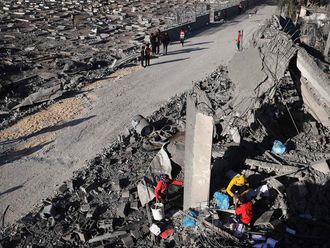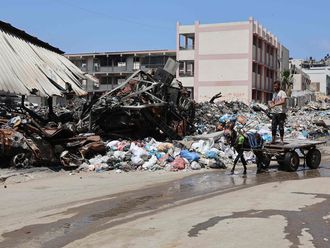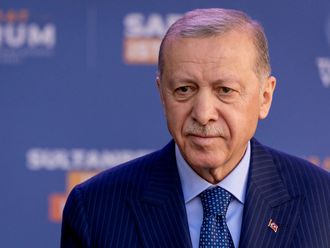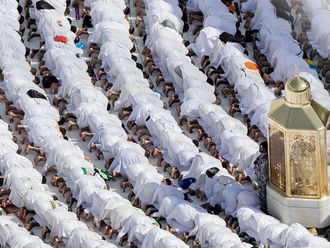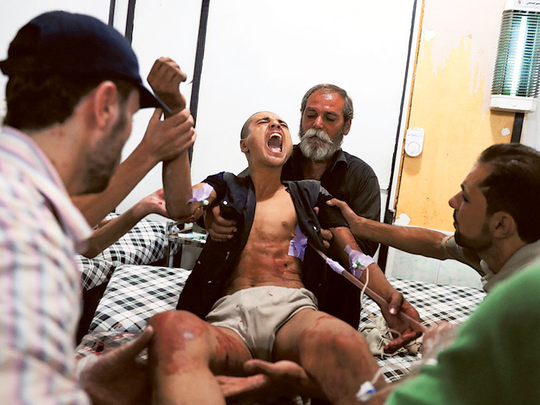
Beirut: More than 300,000 people have been killed in the Syrian conflict since March 2011, a monitor said in a new toll on Tuesday, the first full day of an internationally-brokered truce.
More than 86,000 civilians were among the 301,781 people killed, the Syrian Observatory for Human Rights said.
The civilian toll includes 15,099 children and 10,018 women, the Britain-based monitoring group said.
Rebel fighters made up 52,359 of those killed.
A total of 59,006 Syrian soldiers have been killed, in addition to 48,048 other pro-government fighters from countries including Iraq, Iran and Lebanon as well as Syria.
Terrorists of Daesh and the one-time Al Qaida affiliate now renamed the Fateh Al Sham Front accounted for 52,031 of the dead.
The Observatory said another 3,645 victims could not be identified.
The figure is an increase of nearly 9,000 on the last death toll published by the Observatory in early August.
The United Nations and the major powers have made repeated efforts to end the bloodshed in Syria but all have so far failed.
A new ceasefire brokered by Moscow and Washington went into effect at sundown on Monday and AFP correspondents and residents reported that it appeared to be holding on its first full day on Tuesday.
UN Human Rights Commissioner Zaid Raad Al Hussain condemned the Syrian government on Tuesday, in a wide-ranging speech cataloguing human rights abuses around the world.
In a speech opening a three-week session of the UN Human Rights Council, Al Hussain said Syria was one of five countries that routinely refused to cooperate with human rights investigators.
“This is a state led by a medical doctor and yet is believed to have gassed its own people; has attacked hospitals and bombed civilian neighbourhoods with indiscriminate explosive weapons; and maintains tens of thousands of detainees in inhuman conditions,” Al Hussain said.
“Words cannot convey how profoundly I condemn this situation.” The other countries are Belarus, Eritrea, North Korea, and Iran, but Israel also had a long record of refusing cooperation in terms of access to occupied Palestinian territory, he added.
Venezuela had comprehensively denied access to Al Hussain’s staff, refusing his regional representative a visa for the past two-and-a-half years, he said.
“States may shut my office out — but they will not shut us up; neither will they blind us. If access is refused us, we will assume the worst, and yet do our utmost to nonetheless report as accurately as we can on serious allegations.”
The council, based in Geneva, is made up of 47 countries and aims to protect human rights around the world. It can mandate investigations into suspected abuses.
He cited southeastern Turkey and the Ethiopian regions of Omoria and Amhara, Uzbekistan and both sides of the line of control between India and Pakistan as places that needed immediate investigation, as well as the Nagorno-Karabakh, Abkhazia and South Ossetia in the Caucasus.
The situation in Yemen should be subjected to a “comprehensive inquiry by an international independent body”, and Bahrain should also pay more attention to human rights, he said.
Al Hussain, who recently attacked populist politicians such as US presidential candidate Donald Trump in a speech in the Hague, took another swipe at the dangers of populism in his speech to the council.
“A number of elections will be held in well-established democracies, with dangerous xenophobes and bigots running for office, and what falls to us then could begin to determine, as never before, the future course of ‘we the peoples’ of this earth,” he said.


